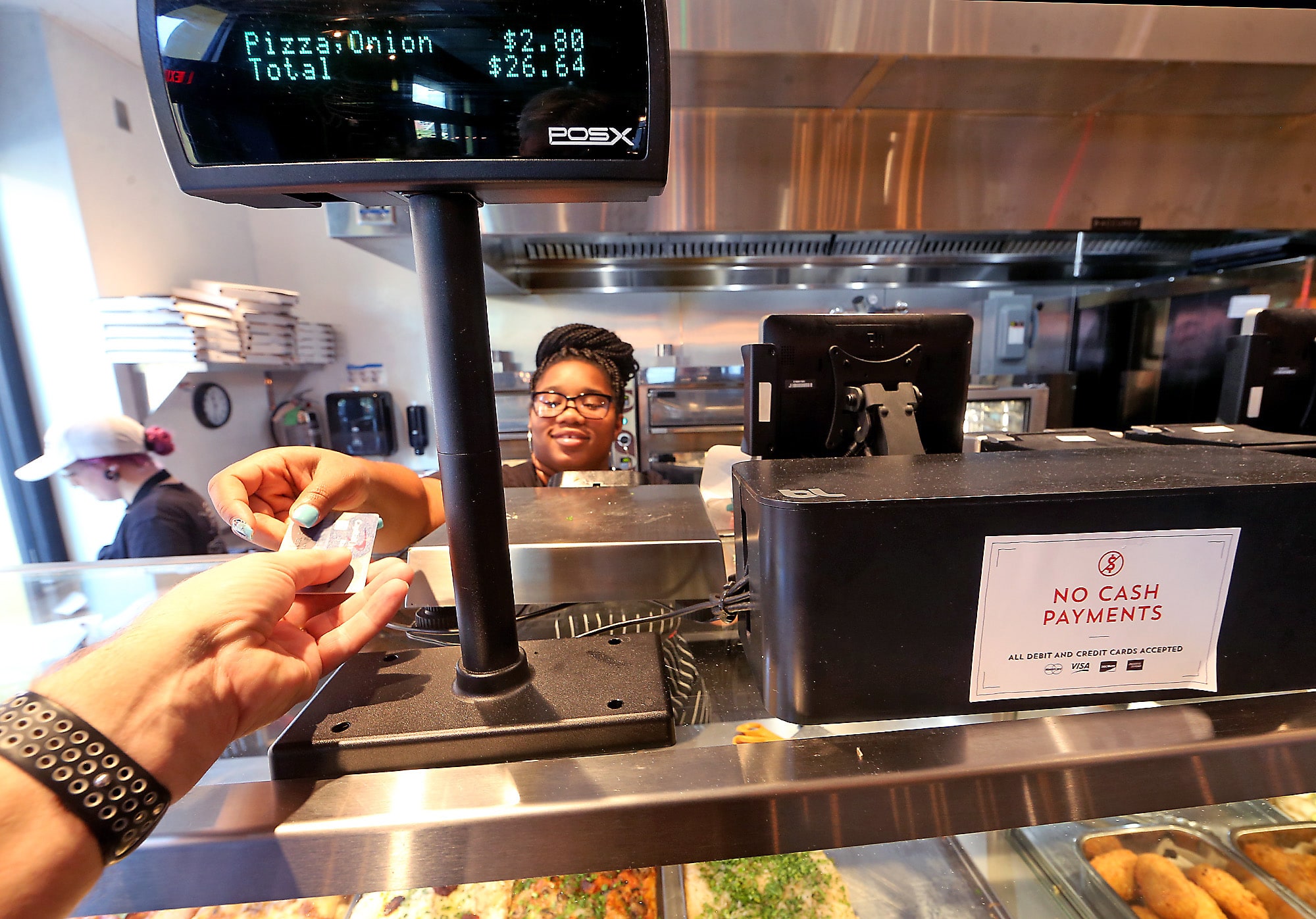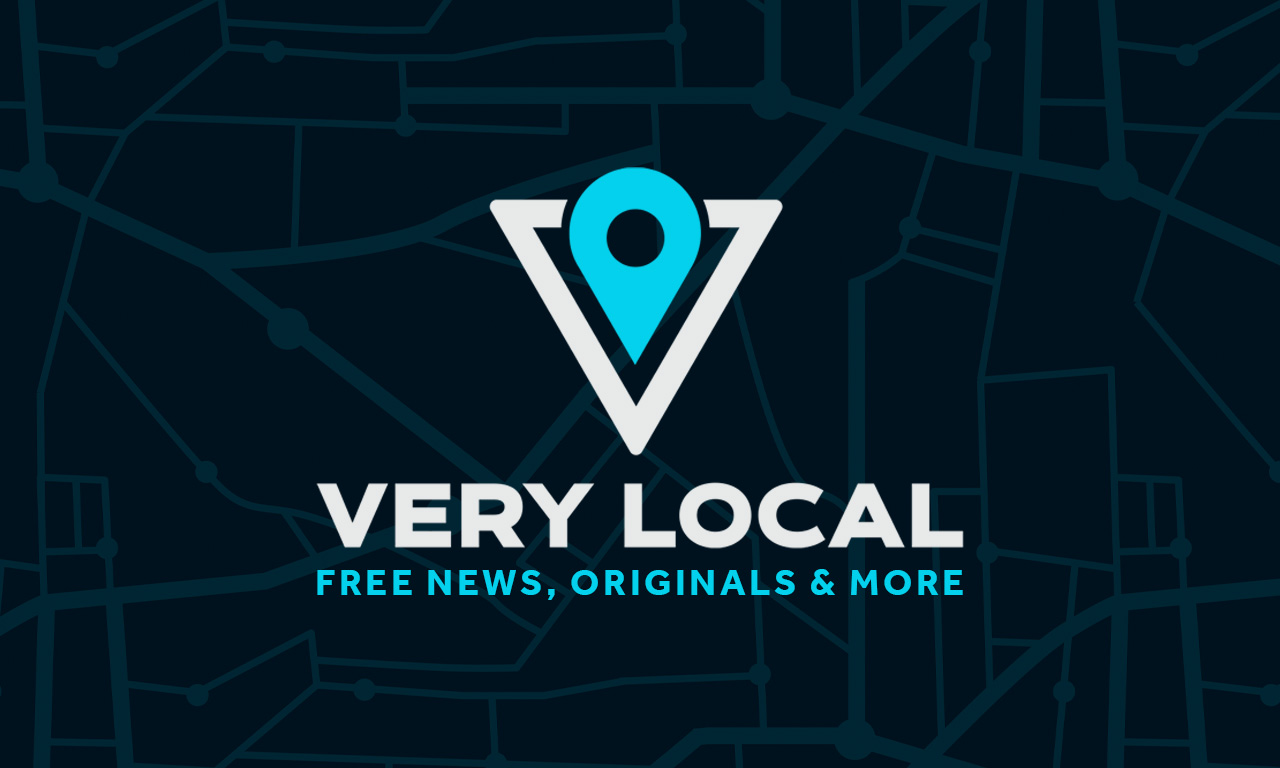Head into Bonci in downtown New Orleans for a quick bite, and it’s obvious the Italian export isn’t your usual pizza chain before you even walk in the door. Here, where the slices are scissor-snipped and you buy your meal by the pound, there’s a sign on the door to let you know they don’t take cash.
Like its two other American locations, and unlike nearly every other New Orleans eatery, signs around make clear their preference for plastic.
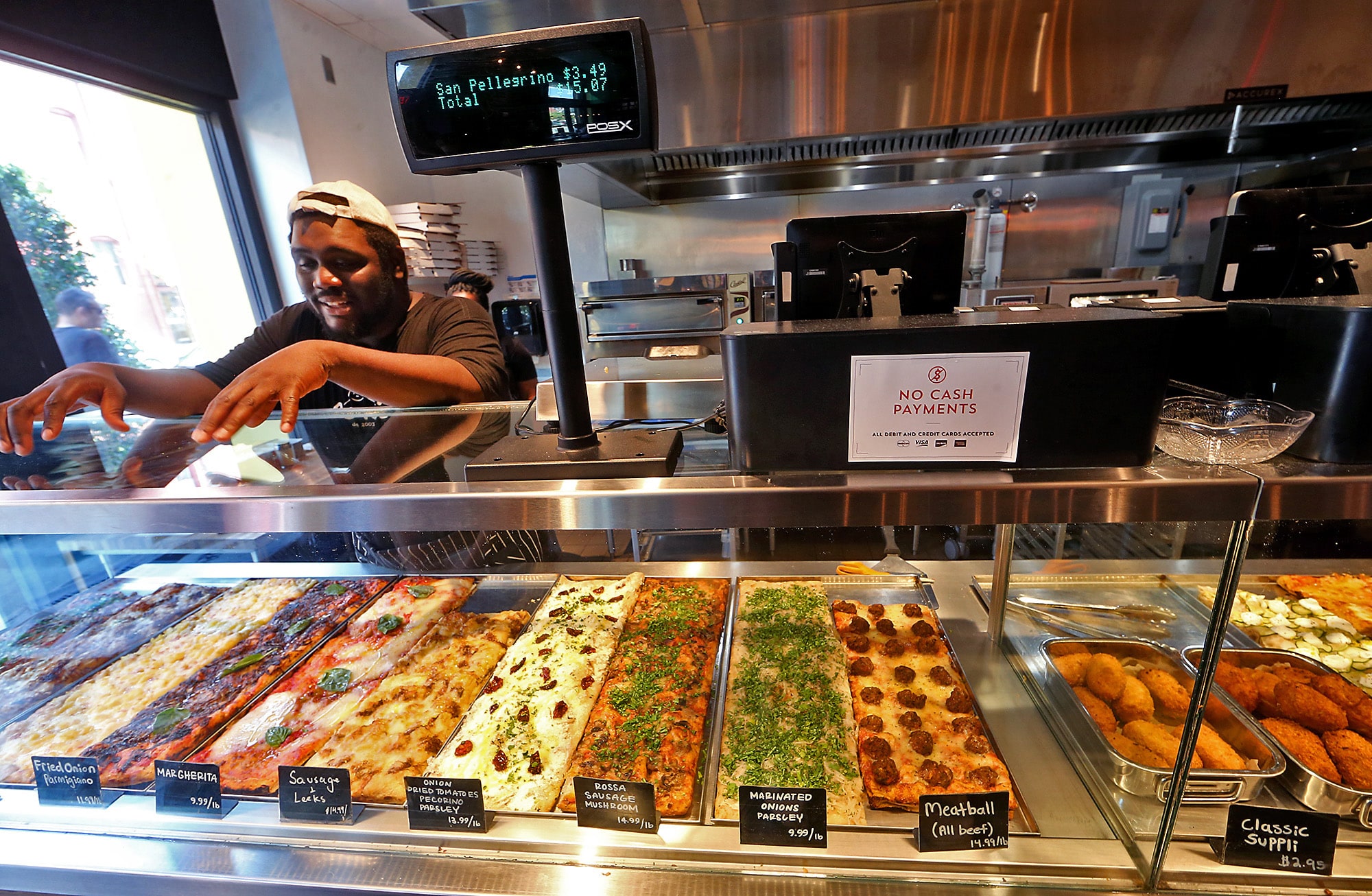
The trend, while already part of the economic fabric of major American cities, was slow to arrive in New Orleans, where it’s not uncommon to get your restaurant bill and learn the establishment actually takes nothing but cash. But with Bonci’s opening, the city now has at least four storefronts that prefer cards, including Bellegarde Bakery, Miel Brewery and Lamara Coffee and Kitchen.
The choice to go cashless doesn’t come without criticism: Cashless operations shut out unbanked people — who are more likely to be in lower-income households and black or Hispanic, according to government data — from being able to fully participate in the economy.
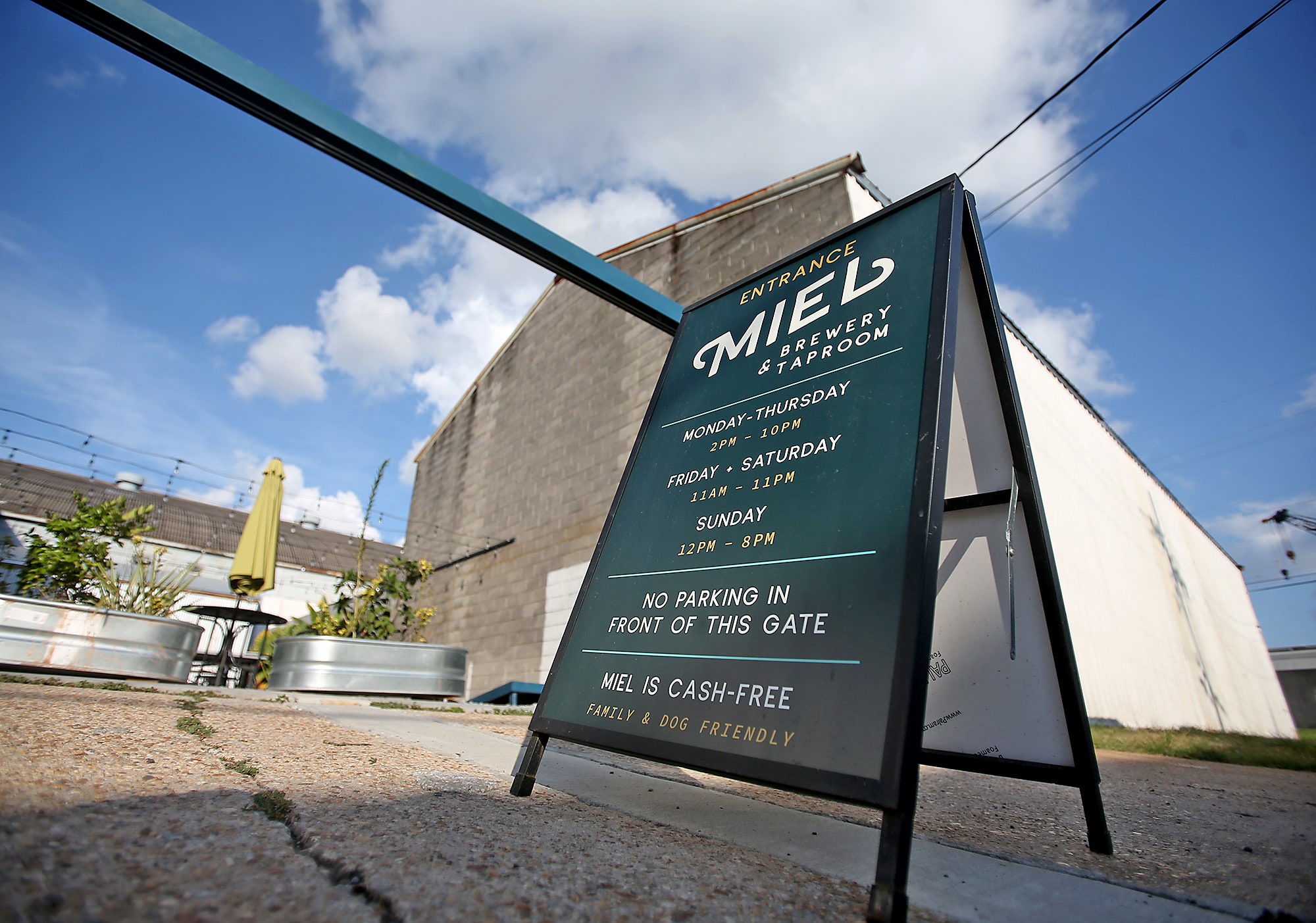
(Photo by Michael DeMocker)
At least three states have banned cashless businesses. Two of them — New Jersey and Pennsylvania — only recently enacted their bans. Massachusetts has had legislation preventing cashless businesses since 1978, and it specifically mentions discrimination.
In a majority-minority city like New Orleans, where a 2017 report indicated more than half the population is struggling to get by, going cashless could have an outsized impact.
“It’s problematic in areas (like New Orleans) right now because there hasn’t been a widespread solution,” said Sheena Allen, the founder of CapWay, an app-based banking system that looks to fill the gap for un- and underbanked populations. Though Allen is from Mississippi, she started CapWay in New Orleans, got funding from Liberty Bank and PowerMoves.NOLA and was a finalist in New Orleans Entrepreneur Week in 2016. “That’s the opportunity I saw and a problem as a company we’re hoping to solve.”
Government data shows that show while unbanked rates are falling, they remain substantial. A May report from the Federal Reserve showed that, nationally, 16 percent of American adults are underbanked. Another 6 percent of American adults are unbanked, including 14 percent of black adults and 11 percent of Hispanic adults.
“For the most part, this audience has been an after-thought,” Allen said. “… There hasn’t been a company built from the ground up to fix that problem.”

(Photo by Michael DeMocker)
In some cases, businesses are actually urging for others to drop the use of cash. In 2017, Visa offered $10,000 to 50 businesses to go cashless.
“We’re focused on putting cash out of business,” Visa Chief Executive Al Kelly said to investors that year, according to the Wall Street Journal.
Still, the “demand for cash is on the rise,” according to a report from the Federal Reserve Bank of San Francisco, as people both nationally and internationally look to use it for value storing. The same report noted in 2016 that the United States had $1.43 trillion worth of cash in circulation.
BonciUSA President Rick Tasman opted to go cashless when he opened the first of his pizza restaurants in Chicago. A longtime restaurateur, Tasman opted to make that choice because he’d seen cash being used less and less in his other businesses. Nixing it completely removed the chances for internal or external theft. But the reason Bonci remains cashless is because it’s just easier for his employees and customers not to bother with it.
“It’s not that it’s been successful,” Tasman said, underscoring that employees don’t have to spend extra time reconciling a register at the end of the night or worrying about having to stash money in a safe. “It may have hurt me, business-wise, but from having a great place to work and a good environment and safe environment for our employees and quicker transactions for customers, I think it’s the way to go.”
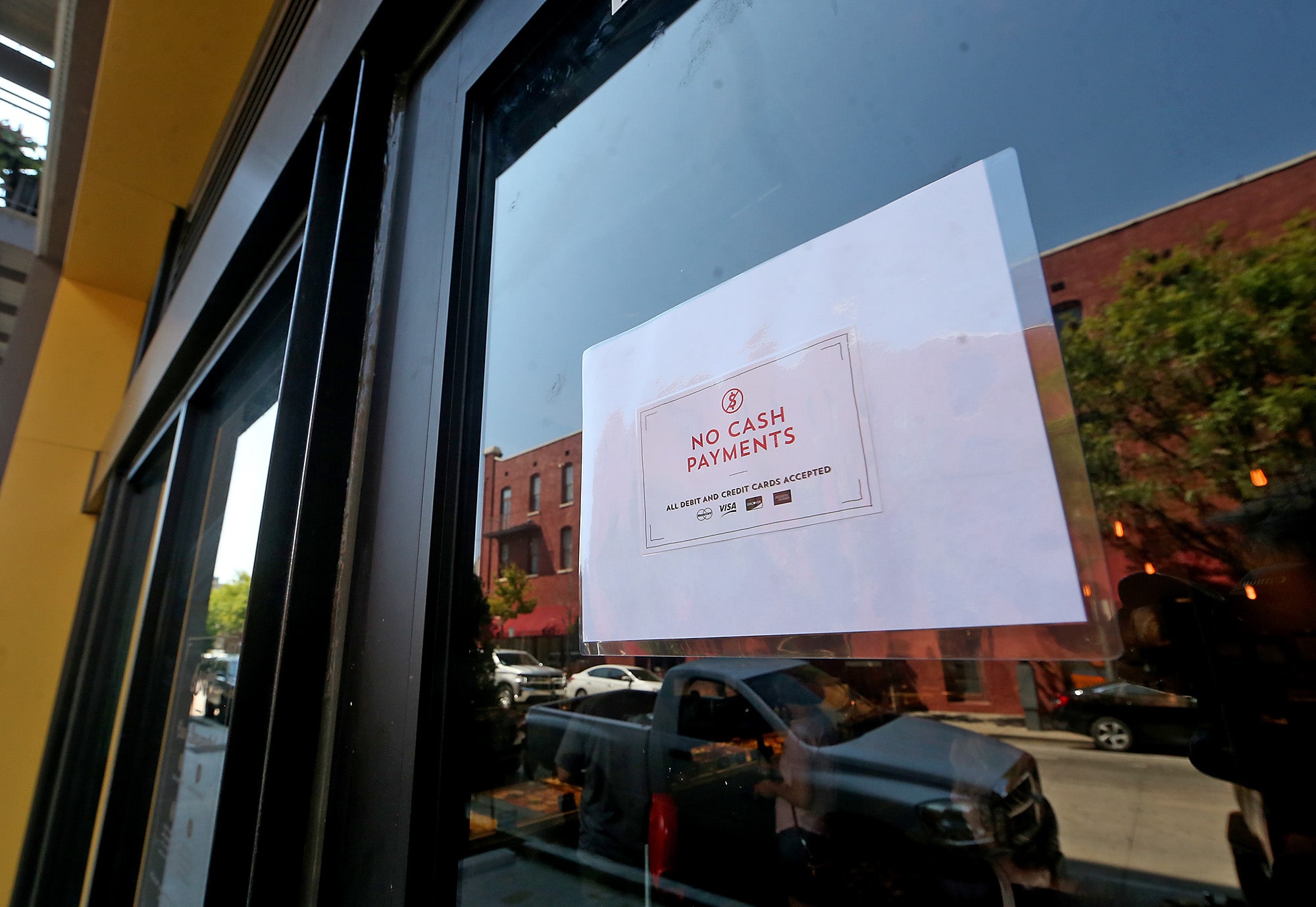
(Photo by Michael DeMocker)
Safety was also top of mind when Miel Brewery owners Janice Montoya and Alex Peyroux first opened their Irish Channel tap room. Although they, too, had noticed fewer transactions happening with cash, they were most concerned with ensuring their employees and guests have a safe place to work and visit.
“When we first started talking about Miel, it was around the time French Truck (Coffee) got held up in broad daylight,” Montoya said.
“We have employees. I feel responsible that their life isn’t in danger,” Peyroux added. “That was a big part of the decision at the time.”
Still, the owners of both Bonci and Miel acknowledge the criticisms of cashless restaurants, which is why despite their stated policies neither business is entirely cashless; they’ll both accept exact change, and Miel will take cash for gift cards.

(Photo by Michael DeMocker)
“It’s been working out well for us,” Peyroux said, noting he and Montoya would consider reversing the policy if their customers pushed for it. “We’re not trying to change how the economy works, and we’re not trying to make a political statement. It’s just going to make our lives easier and quality of life better.”
It’s likely other business owners will opt for that ease, too, according to Allen, the CapWay founder.
The owners of Bellegarde Bakery declined to comment for this story after requesting and receiving questions for it by email, and Lamara Coffee and Kitchen owner Mischa Kachkachishvili did not respond to an interview request.
“It’s something we’re all eventually going to have to deal with,” Allen said. “There’s still a lot of cash, but times are definitely changing, regardless if we’re in New Orleans or the Mississippi Delta or in Miami with a huge immigrant population. Eventually, we’re all going to get hit with it.”

